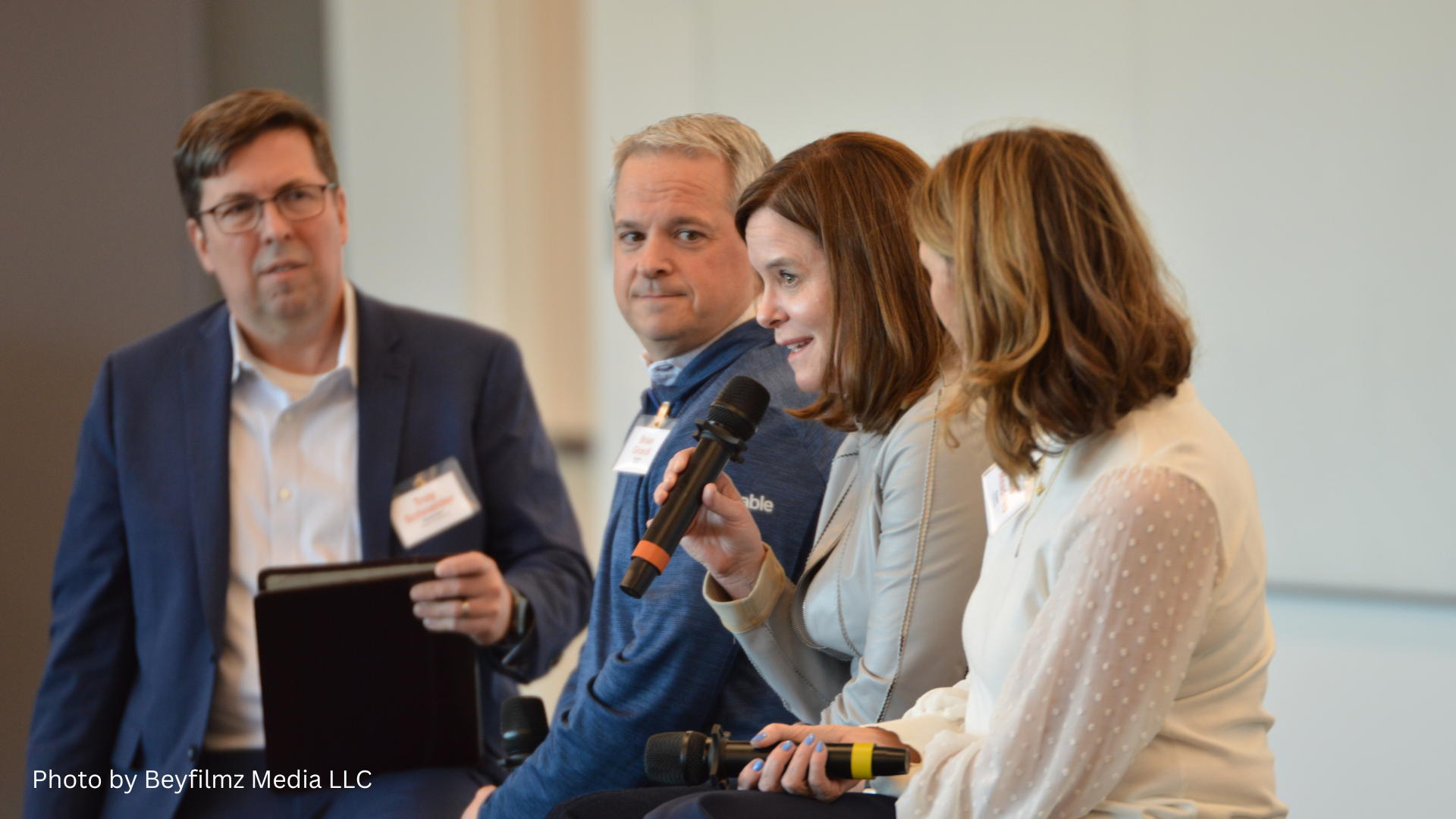A panel of AI experts recently convened at the stunning, brand new and cutting-edge Virginia Tech Innovation Campus to discuss the intersection of artificial intelligence (AI) and cybersecurity in the federal space. Sponsored by Lunch Pail Ventures, a venture capital group run by VT alumni (yes, I learned about the “Hokie Bird”), the all-Hokie panelists included Lara Meadows, Global VP of Security Architects at ThreatConnect; Brian Girardi, SVP Product Operations at Tenable; and Leigh Palmer, Vice President, Google Public Sector. The esteemed Troy Schneider, Executive Vice President and General Manager of Billington CyberSecurity (but not a Hokie), expertly moderated.
The discussion covered both the promise and the perils of an AI landscape that is changing literally by the month, highlighting the transformative impact AI is already having on public sector operations, and what challenges still lie ahead. Here are a few key takeaways:
- The pressing need for innovation. It’s well known that the federal government is hampered by slow decision cycles and strict compliance regulations, so agencies struggle to keep pace with rapid technology advancement. The panelists emphasized the need to modernize outdated frameworks like FedRAMP and create more agile paths to innovation. That is going to require government agencies to evolve not just in policy but in culture, so they can readily adopt emerging tools to do more with less. We can see that evolution starting to be forced through the current Administration’s aggressive efficiency push.
- Automation is the new cybersecurity backbone. A recurring theme was the importance of automation in modern cybersecurity. Traditional human-driven processes can’t keep up with the growing volume of threats and data to be monitored. AI can be used as a critical force multiplier, enabling real-time detection, threat intelligence and incident response at scale. While panelists insist this is about elevating–not replacing–people, they did own that the monotonous tasks of entry-level security jobs like Tier 1 SOC analysts are increasingly being handled by AI.
- We’re already in a new AI arms race. Even as AI becomes integral to cybersecurity defense, it’s also become a weapon in the hands of bad actors. Generative AI is already being extensively used by adversaries to craft sophisticated phishing attacks, automate reconnaissance and even manipulate training data. One panelist noted a recent global report identifying GenAI as the top tool exploited by cybercriminals today. This raises the stakes for AI governance, with the imperative to secure AI models and supply chains now to avoid the risk of building systems on poisoned data that would undermine national security in unprecedented ways.
- The role of humans is in flux. Views were a bit mixed on the role of humans in the AI equation. Panelists varied on the degree to which humans needed to be out of the loop to enable AI-based analysis and decision-making vs. remaining involved to bring the context, emotional intelligence and ethical judgment that machines lack. There was agreement that cybersecurity jobs are changing, and that cyber professionals will need to reskill to focus on oversight, creative problem-solving and system-level thinking rather than rote tasks. This shift demands investment in workforce training and education across both the public and private sectors.
- We need stronger public-private partnerships. While many leading innovations come from startups or commercial tech firms, barriers like complex accreditation processes often prevent these solutions from reaching government users. Simplifying the path, and encouraging diversity in AI models and providers, will ensure more robust, resilient systems. Panelists also advocated for federal agencies to do more to support innovation through funding, pilot programs and collaboration.
While it’s far too early to know the full impact of the foundational AI shift we’re now experiencing, the panelists all agreed that the choices we make today will define how safe, efficient and forward-thinking our public institutions can be in the years ahead.
Expert conversations like this panel discussion are critical to raising awareness and advancing an essential conversation on how the government can leverage AI and machine learning to our national benefit, while building the guardrails we need for a new era of national defense. Thanks to Lunch Pail Ventures for hosting this event, and congratulations to Virginia Tech on the opening of its exciting Innovation Campus!





